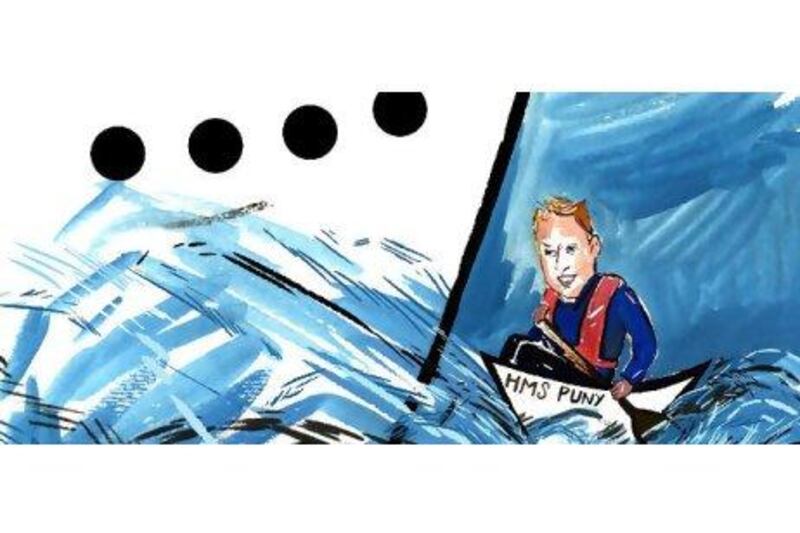It was Britain's most successful post-war military expedition. It was the conflict that saw thousands of troops travel thousands of miles to snatch back a tiny speck on the map from unwelcome invaders. And it was the moment in which the Iron Lady showed her iron will to the world.
Thirty years ago next month, Britain was consumed first by deep shame when the Falklands, a cluster of inhospitable and unheralded islands in the South Atlantic, were seized almost without a struggle by invading Argentine forces on April 2, 1982, and then by an overwhelming wave of patriotism, as a simmering sovereignty dispute boiled over into a full-scale military campaign.
Amid much flag-waving, Margaret Thatcher, the British PM, dispatched all the naval hardware Britain could reasonably muster to the southern hemisphere in April 1982 - no mean feat in an era when successive rounds of reviews had cut an underfunded military to the bone - to recapture a largely forgotten colonial outpost that few British subjects had heard of, much less cared about, even days before the invasion.
Two and a half months later, in June 1982, after the war had claimed the lives of hundreds of British and Argentine servicemen, Argentina was forced to temporarily drop its claim over the islands. It has since expressed its desire, sometimes forcefully, to reclaim Las Malvinas.
Anniversaries are funny things. They make us remember and reflect and, in the case of the Falklands War, might easily make us resolve that history is rarely worth repeating. So why then does the current diplomatic situation look so familiar?
Perhaps this is because of the lay of the political land, especially in Britain, where a diminished nation under a newish government is going about the business of restructuring a nation's stressed finances in the midst of a bruising economic downturn (just like Thatcher did 30 years ago) and of scaling back the reach of its military to fit with the prevailing financial conditions.
Those cutbacks are now regarded as desperate, at least by those who know the terrain best: Sandy Woodward, the man who led the British task force to the South Atlantic 30 years ago, even told The Daily Telegraph earlier this week that "we could not retake the Falklands" if there was another invasion. He concluded that "if [the military] had been in this state in 1982, the Falklands would now be [in Argentine hands]".
Argentina, meanwhile, is caught within a far more confident mood and is sufficiently emboldened to engage in a low-level war of words on the international stage. In doing so, Argentina has raised concerns over Britain's plans to dispatch a nuclear submarine to the South Atlantic and has questioned the motives of the recent high-profile deployment of Prince William as a helicopter pilot on the islands: why send a member of the royal family to the Falklands (repeating the journey his uncle Prince Andrew made three decades ago during the war) and, especially, why now, if not to ensure an unnaturally tense 30th anniversary?
In truth, those tensions would exist with or without the presence of the prince.
Oil exploration and the pursuit of the riches it could yet yield, lie at the heart of the matter. Analysts suggest more than $100 billion worth of oil - one of the larger unexplored fields in the world - could sit off the Falklands and both the British and Argentine governments have their eyes on a sizeable piece of that prize.
For his part, David Cameron maintains that the Falklands will be British for as long as it is the wish of the islanders, effectively closing the door on any form of negotiation or even a revenue share. Surely something will have to give, if for no other reason than the spoils are far more significant than those of a generation ago.






